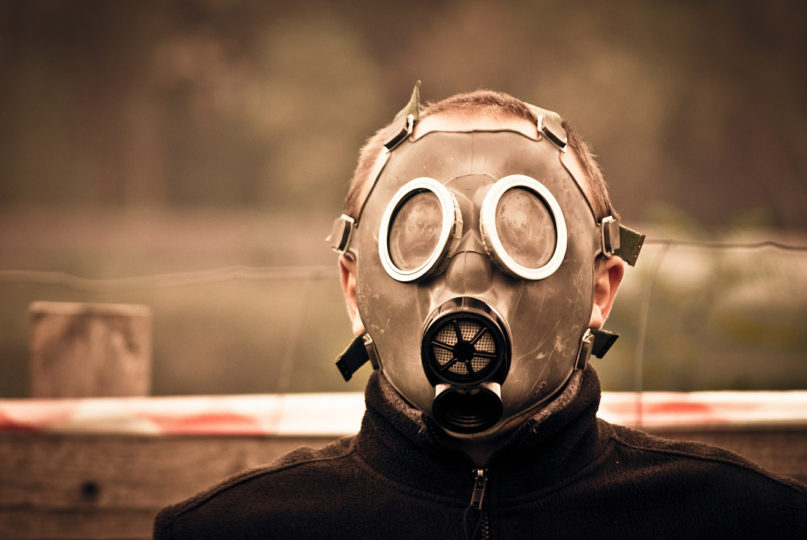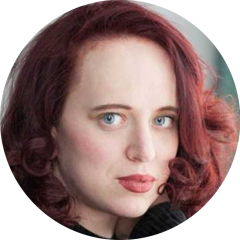(RNS) — On Friday (July 17), Ed Mullins, president of the Sergeants Benevolent Association, made a Fox News appearance from his office with an “Easter egg” placed discreetly in the background: a mug emblazoned with the logo of QAnon, the far-right conspiracy theory taking over the reactionary internet.
The same day, The New York Times published a profile by Seyward Darby of a former white nationalist named Corinna Olsen. The piece has been criticized for its curious sympathy toward Olsen’s haphazard journey into and out of the movement, but it’s notable for capturing just how arbitrary Olsen’s attraction to racist groups was. Olsen appears to be the sort of person who just wanted to belong to something, ideally something transgressive or countercultural, to lend her a sense of purpose.
Part of Olsen’s impetus to leave the white supremacist movement, Darby implies, wasn’t righteous anger at her fellow supremacists’ hatred, but rather boredom: Her fascination had moved on to bodybuilding and gym culture; soon thereafter, she converted to Islam.
These two media moments, taken together, tell us much about the strange confluence of faith identity and countercultural aesthetics in contemporary American religious life. The ubiquity of QAnon, a once-fringe conspiracy theory on the modern right — and one that claims to have uncovered a secret sexual conspiracy called Pizzagate at the heart of American politics — and the banality of one woman’s path to racial hatred both suggest that American public life and identity have fetishized a narrative of historical collapse.
We are living at the end of history, this aesthetic goes, and that’s fundamentally exciting. It is an aesthetic that celebrates chaos for its own sake, and celebrates those who recognize that they’re living on the edge. This apocalyptic fantasy has also become a recruitment tool for the far-right.
Underpinning the logic of QAnon is a narrative of both heroism and destruction, in which intrepid keyboard warriors can uncover and overthrow a deep state committed to the status quo. That same narrative supports the fanatical and hysteric ideology of modern race war as concocted by the “far white”: America in 2020 as the last stand to defend the white race.
It is necessary to understand and condemn the racism — structural as well as individual — and racial hatred encoded deep within these movements. But it is necessary, too, to understand that their pull is a promise of a role to play in history’s last battle. This vision of post-apocalyptic meaning-making — the end-of-history as a survivalist video game — is a symptom of our collective cultural alienation and the sense of meaninglessness wrought by life under late capitalism.
You don’t have to be a prepper to indulge in this post-apocalyptic aesthetic. From Cormac McCarthy’s “The Road” to the “Mad Max” film series, the lone hero set against the remnants of civilization has been an integral part of American mythmaking. It sets the personal heroism of “Die Hard” in a time when things — and individuals — still matter, in which systems suspected to be not just ineffectual but irredeemably corrupt are finally coming apart.
More than a decade ago, Christopher Nolan made a Batman movie in which the villain the Joker, known for his association with chaos, was portrayed by Heath Ledger as a dandyish psychopath and later pop culture phenomenon who “just wants to watch the world burn.” Our white supremacists and Q followers like to think of themselves in these terms.
The reality is more like Joaquin Phoenix’s more recent Joker in the film by the same name: a lonely, beaten-down man who turns to senseless violence in order to have his own sense of meaning in a world devoid of any spiritual or moral grounding. The far right’s cruelty is inseparable from this aesthetic and religious hunger: to be in a world like this, where everything makes sense and where they at last have a role to play.






